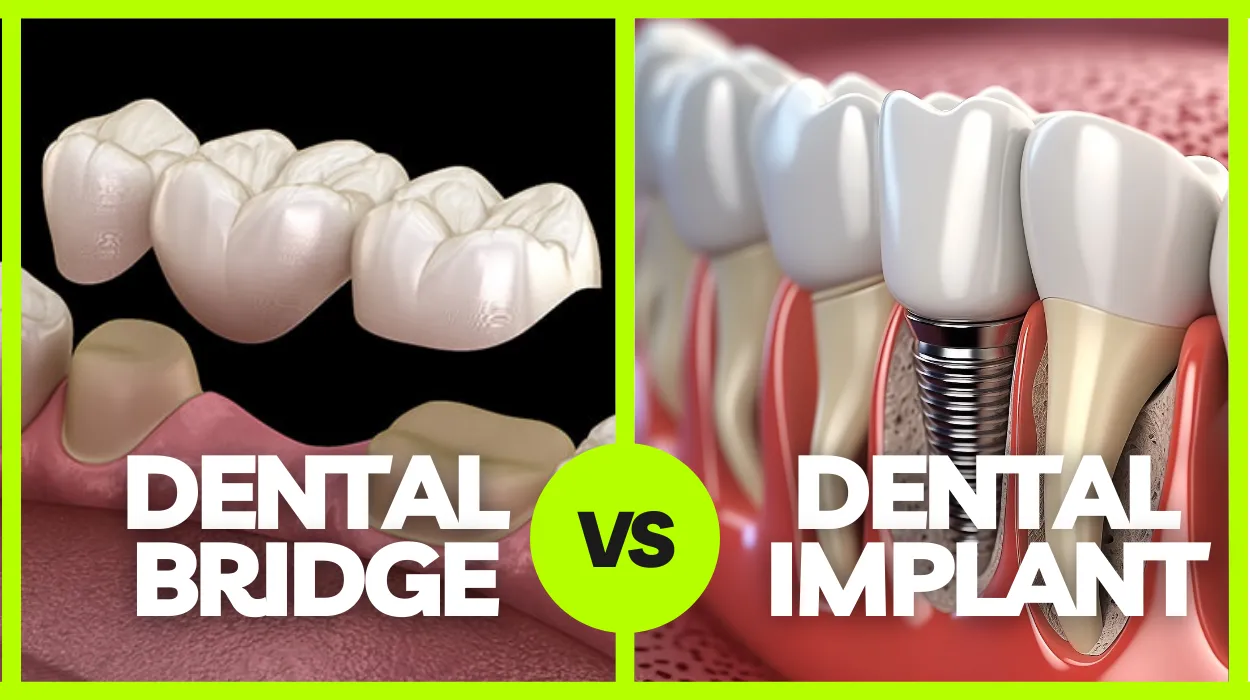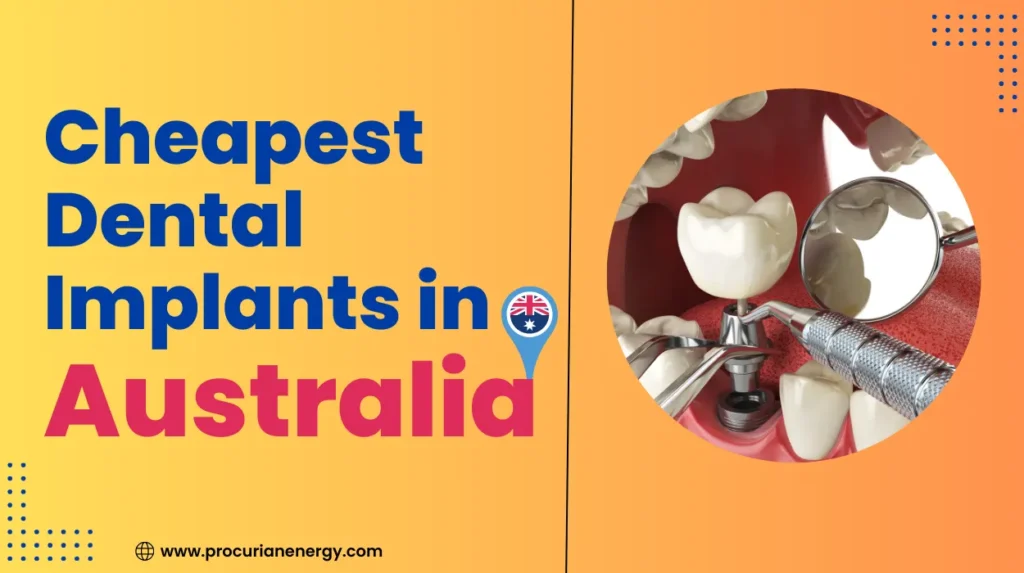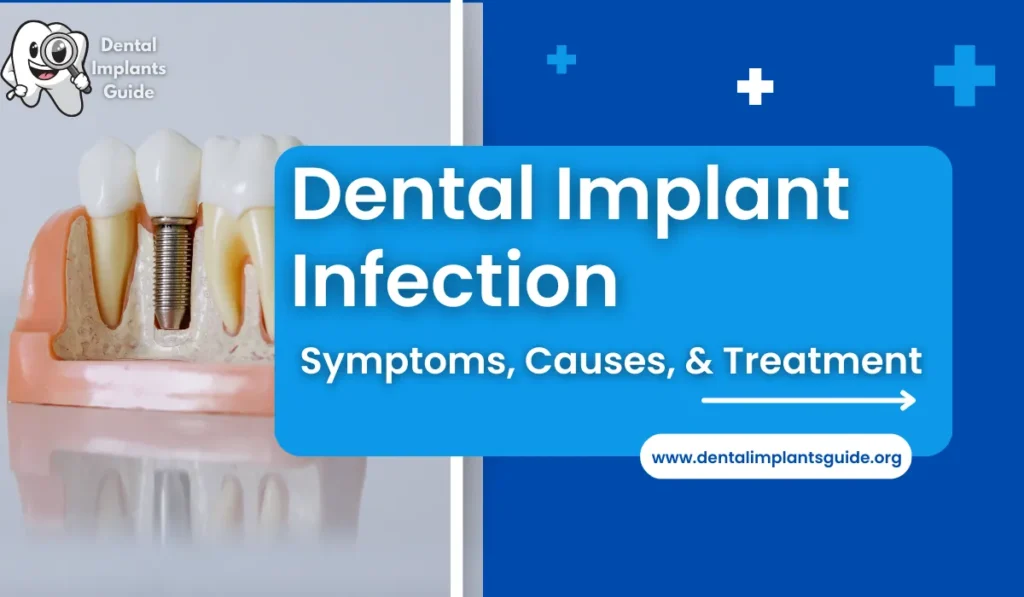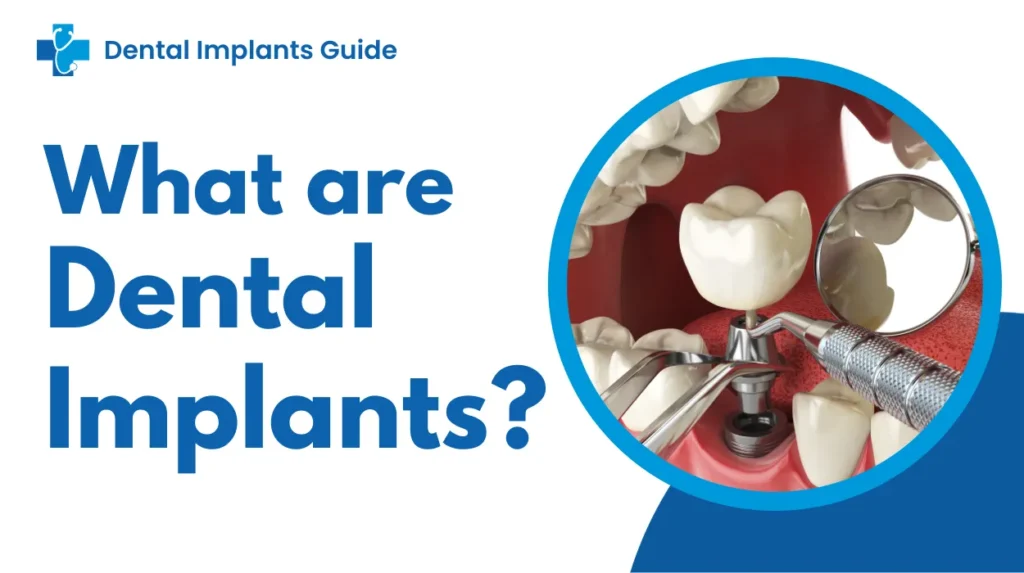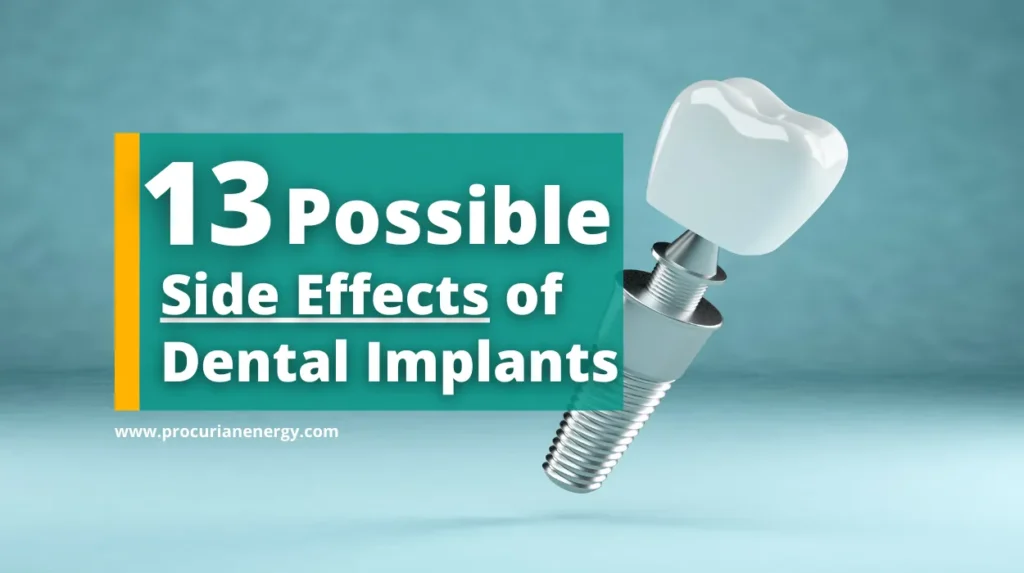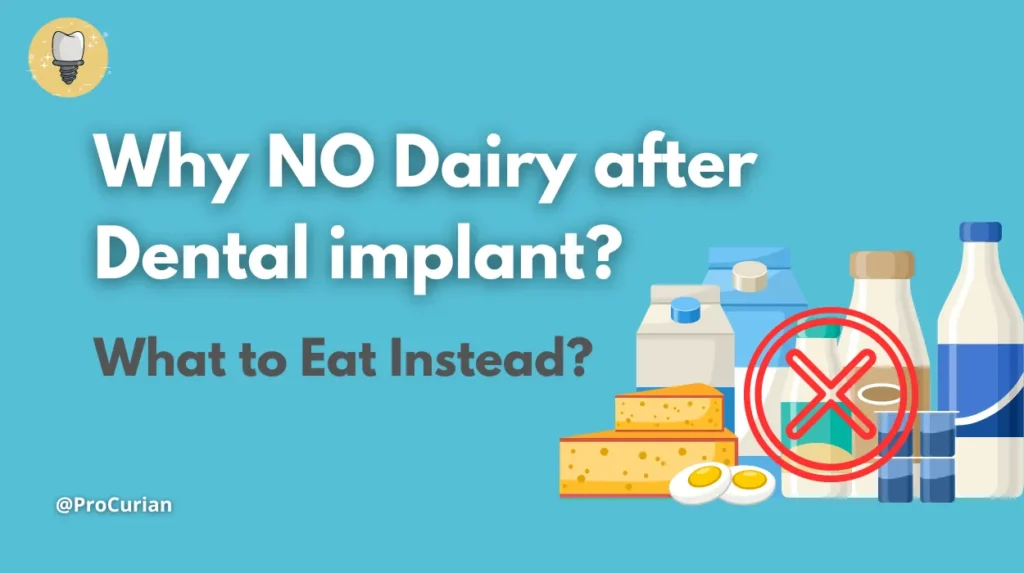Dental Bridge vs Dental Implant: When it comes to replacing missing teeth, you have a couple of options: dental bridges and dental implants.

To help you decide which of these two options is best for you, we’ll explain the differences between Dental Bridge and Dental Implant in clear and simple terms.
Dental Bridge
A dental bridge is like a bridge you might see on the road, but it’s for your teeth. It’s made of two crowns on the teeth on either side of the gap (abutment teeth) and a false tooth in the middle (pontic). The bridge literally “bridges” the gap left by a missing tooth.
Pros of Dental Bridges
| Pros | Explanation |
|---|---|
| Affordable | Usually less expensive than implants. |
| Quick | Takes less time to get a bridge. |
| No surgery | No need for surgery; it’s less invasive. |
| Easy to clean | Easy to maintain with regular brushing. |
Cons of Dental Bridges
| Cons | Explanation |
|---|---|
| Doesn’t last | May need replacing after 5-15 years. |
| Requires support | Needs support from neighboring teeth. |
| Possible damage | Adjacent teeth may need to be shaved. |
Dental Implant
A dental implant is like a new tooth root. It’s a small post made of strong materials like titanium that gets placed in your jawbone.
Then, a crown (the visible part of the tooth) is attached to the implant. It’s like planting a new tooth. There are many types of dental implants available for different surgeries.
Pros of Dental Implants
| Pros | Explanation |
|---|---|
| Permanent | Can last a lifetime with proper care. |
| Standalone | Doesn’t rely on nearby teeth for support. |
| Looks natural | Feels and looks like your real teeth. |
| No cavities | You can’t get cavities in an implant. |
Cons of Dental Implants
| Cons | Explanation |
|---|---|
| Pricey | Usually more expensive than bridges. |
| Surgical | Requires oral surgery for placement. |
| Healing time | Longer healing and recovery period. |
Differences between Dental Bridge and Dental Implant
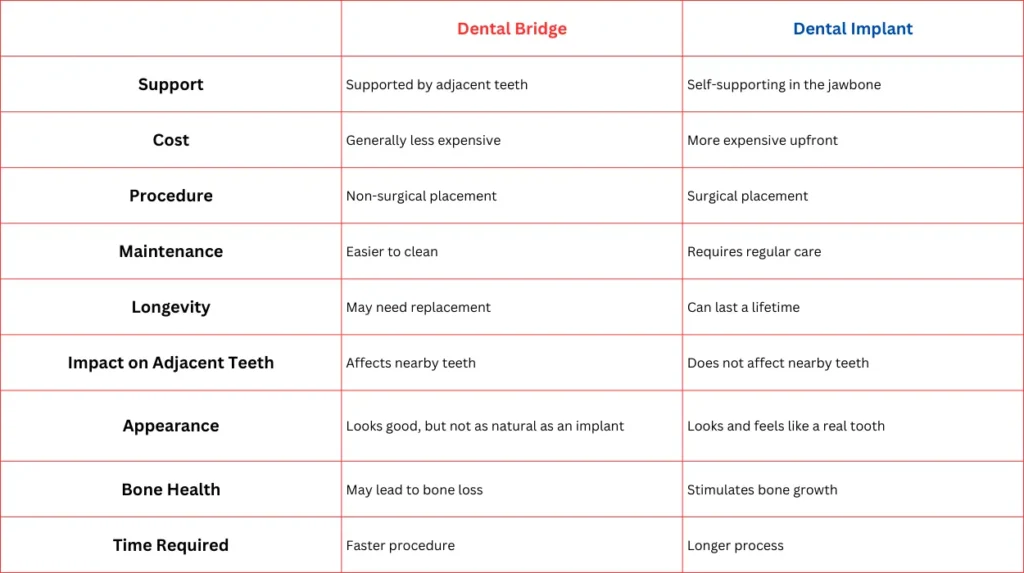
Now, let’s compare dental bridges and dental implants to help you decide which one might be better for you.
| Dental Bridge | Dental Implant | |
|---|---|---|
| Cost | Affordable | More expensive |
| Durability | Lasts 5-15 years | Can last a lifetime |
| Procedure | Non-surgical | Surgical |
| Appearance | Looks natural | Looks natural |
| Maintenance | Easy to clean | Requires care |
| Adjacent Teeth | Can affect them | Preserves them |
| Time to Complete | Faster (2-3 weeks) | Longer (3-6 months) |
| Comfort | May cause discomfort | Comfortable |
Apply for: Free Dental Implants Grants
Which One is Right for You: Dental Bridge or Dental Implant?
Now that you have an idea of the differences, let’s help you decide which option might be best for you:
Go for a Dental Bridge If:
Consider getting a dental bridge if:
- You’re on a tight budget.
- You prefer a quicker and non-surgical solution.
- You have strong adjacent teeth to support the bridge.
- You’re not too concerned about long-term maintenance.
Choose a Dental Implant If:
Think about getting a dental implant if:
- You’re looking for a long-term solution.
- You want a more natural look and feel.
- You’re willing to invest in a surgical procedure.
- You want to maintain your jawbone health.
Which is more expensive a Bridge or Implant?
A dental bridge is usually less expensive than an implant. Cost of dental implants are more because they need surgery and special materials.
Bridges are a bit cheaper because they don’t need surgery and are easier to make.
How long do Dental Bridges & Dental Implants last?
Dental bridges can last around 5 to 15 years or even longer if you take good care of them. But they might need to be replaced eventually.
Dental implants can last a very long time, often for a lifetime, if you keep them clean and visit your dentist regularly. They are usually a more permanent solution compared to dental bridges.
Can I switch from Bridge to Implant?
Yes, you can switch from a bridge to an implant. It’s like changing from one kind of tooth fix to another. But you should talk to your dentist about it because they can help you decide what’s best for your teeth.
How many Implants are needed for a bridge?
The number of implants needed for a bridge depends on how big the space is in your mouth where you’re missing teeth.
Usually, you need one implant for each missing tooth. So, if you’re missing two teeth, you’ll probably need two implants.
How many teeth can you put on one bridge?
You can put about 1 to 4 teeth on one bridge. It’s like a dental bridge can replace up to 4 missing teeth in your mouth.
What happens if you get a cavity under a bridge?
If you get a cavity under a bridge, it’s a problem because the bridge can’t protect your tooth anymore.
First, it might hurt sometimes, like a toothache. You might also notice that the area around the bridge feels sensitive when you eat or drink something hot, cold, or sweet.
Second, if you don’t take care of it, the cavity can get bigger and spread to other parts of your tooth.
Can you clean under a Dental Bridges or Dental Implants ?
Yes, you can clean under dental bridges and dental implants. It’s important to keep them clean to prevent problems.
For dental bridges – Use special floss called “floss threaders” or small brushes to clean under the bridge. Slide the floss or brush gently between the bridge and your gums to remove food and plaque.
For dental implants – Brush and floss around implants like your natural teeth. Use a soft toothbrush and non-abrasive toothpaste. Special brushes can also help clean around the implant posts.
Are Dental Implants & Dental Bridges Covered By Dental Insurance?
Dental insurance can help pay for some of the costs of dental care, but whether it covers dental implants or dental bridges depends on your specific insurance plan.
Some dental insurance plans do cover a portion of the cost for dental implants or bridges, but it may not cover the entire expense. You might still need to pay a part of it, which is called a copayment or deductible.
Final Thoughts
In the end, the choice between a dental bridge and a dental implant depends on your unique situation, budget, and preferences.
Remember, both options have their pros and cons, but the most important thing is to replace that missing tooth so you can smile confidently again.
So, whether you opt for a dental bridge or a dental implant, you’re taking a step toward better oral health and a brighter smile!
